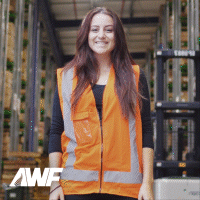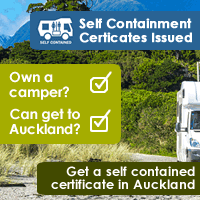The Golden Rules of Camping in NZ
An unbelievably beautiful Department of Conservation camp-site all to yourself, a bells-and-whistles holiday park or a hidden gem wild camping spot – all these and more are possibilities in New Zealand. Camping in this incredible country is as good as it gets anywhere in the world with thousands of sites to choose from ranging from the back-of-beyond to urban centres and from those which offer nothing but a patch of ground and tranquillity to those with every facility you could want.
However, no matter which of these options you go for or whether you are in a tent or a camper-van there are some things to keep in mind. In most cases these rules are all about respect – respect for the environment so that astonishingly beautiful New Zealand stays that way and respect for your fellow campers so they get to enjoy their chosen spot every bit as much as you do.
Leave No Trace
'Take nothing but photos and leave nothing but footprints' goes an ages-old adage and if there is one camping rule to rule them all this would have to be it. Take one last look behind you as you leave a camping spot and if there is no evidence that you were ever there you have earned yourself a respectful campers' star.
It can be far easier to do this at a designated camp-site than a wild camping spot because the former has litter disposal and often other facilities but easy or not the responsibility is yours.
And what does 'leave no trace' really mean?
- You won't have introduced any chemicals – soaps, washing up liquids, laundry powers etc – into any waterways either directly or by thoughtlessly and incorrectly disposing of anything used.
- You will take all rubbish with you and this even includes organic food scraps. Biodegradable or not you brought it in so you have to take it out. Introducing something into the environment that is not meant to be there – even if it will quickly rot down – can be detrimental to certain sensitive flora and fauna in ways you couldn't even imagine.
- You won't have broken off any living vegetation or branches to use as kindling, firewood, make-shift tent poles, hiking sticks or anything else.
- You won't have damaged plants or trees in any way.
- You will have extinguished any fire you may have had properly and - unless the camp-site has designated fire pits – returned the ground to how you found it. Don't bury anything which you chucked on the fire and didn't burn down fully to ashes. This also counts as litter so take it with you.
'No Camping' Means No Camping
Of course it can be tempting when you rock up at an idyllic spot to defy that 'no camping' sign, especially if it seems as if there is no-one around for miles to mind. However, no camping means no camping. In some cases it is a local by-law being enforced, at others it might be because there is sensitive wildlife or plant-life in the area which might not be obvious. Whatever the reason ignoring any signage is blatantly disrespectful in a country where you are a guest. And if that doesn't move you then perhaps the idea of a hefty fine will. Fines for defying any 'no camping' signs are not just possible but actually handed out on a regular basis.
Camp-fire Rules
Does it get more idyllic than this.....sitting round your camp fire, beer in hand, under a canopy of stars pulsing and twinkling in the night sky? Probably not, which is why everyone wants a camp-fire and luckily there are lots of camping places in New Zealand where you are allowed to have one. However, just with the 'no camping' rule above if there are signs that say 'no fires' then you need to follow them. At certain times of the year and in certain places one stray spark from a fire could be (and has been) disastrous.
If you are permitted to build a fire be aware of the following:
- Learn how to build a fire properly and how to contain it so it stays where you want it.
- Don't burn plastic or glass on fires – plastic creates toxic fumes and smoke and glass explodes leaving dangerous shards which could injure wildlife (or campers who come after you).
- Learn how to extinguish a fire properly so that it isn't still smouldering when you leave.
- Use only driftwood or dead wood lying on the ground – don't break twigs and branches off trees to use.
Silence is Golden
Camping has a relaxed open-air nature and the majority of people who choose to do it tend to be of a certain free-spirited laid-back type – especially in New Zealand. For that reason many people forget there are rules to be observed concerning others and consider an anything-goes attitude is OK by everyone. However, just like in a hotel or hostel this is shared space and you need to be respectfully aware of that.
Many of the New Zealand camp-sites are all about escaping into nature and tranquillity so you blasting out your music, stumbling around the camp-site late at night shouting to your friends or slamming your camper-van door continuously at the crack of dawn are not things which are going to be welcomed by everyone else. Your fellow campers are here to enjoy themselves just as you are and if everyone takes that into account it is more fun all round.
Don't Be Dishonest with the Honesty Boxes
While you will pay on arrival at a reception desk for your stay at many camp-sites there are those which are unattended – most notably Department of Conservation sites. In these cases there are usually honesty boxes. In the case of DOC campsites these allow you to pay the fee displayed with a tear-off from your payment envelope (provided at the self-registration point) serving as your receipt which you must display on your tent or van.
Periodically DOC rangers will come round checking these and sometimes hand out hefty fines to anyone who hasn't paid. Wondering if you can get away without paying? Possibly – but in the camping world (or any decent world where integrity is valued for that matter) this is a pretty low thing to do. You are super-lucky to have these incredible places to camp for what is often little more than a nominal fee. Play the game fairly and don't abuse the trust which has been placed in you so that these systems can remain in place for everyone to continue to enjoy.
Protect the Environment from Your Chemicals
Already mentioned under 'Leave No Trace' this golden rule is a biggy. While camping you will no doubt be cleaning your dishes with washing-up liquid, washing yourself with soap and shampoo, brushing your teeth with toothpaste and perhaps doing your laundry with detergents. All of these contain chemicals which when introduced to the environment can have a disastrous impact; most significantly when they are introduced to the ocean, rivers or lakes. If your camp spot has showers, sinks and plumbing systems to carry chemically contaminated waste water away properly use them.
Otherwise do your chores and washing as far away from any water source as possible and better still be a self-contained camper so all waste water containing chemicals can be taken away with you and disposed of in the right way at dumping stations or another camp-site which has these facilities. Most importantly of all NEVER use a waters source directly for washing you or anything else.
Keep Your Gear Pristine
If you brought any outdoor or camping gear with you into the country and passed through the bio-security part of immigration you will already know how seriously the country takes this subject. One seed or contaminated particle of earth in the tread of a hiking boot might be enough to set off a negative chain reaction in New Zealand's natural world which can spell the end for certain plants or wildlife. Something doesn't have to be diseased.....it just has to be something which doesn't belong here and can pose a threat to a finely tuned eco-system.
The same is true as you move from camp-site to camp-site around New Zealand. Keep your things clean – tents, hiking gear etc – to play your part in protecting the environment and not inadvertently introducing something harmful.
Human Waste
We all have to do it – go to the loo that is. But quite how you deal with this whole aspect of camping is incredibly important. Even the most isolated DOC camp-site will have some form of toilet facility (usually a long drop which admittedly can be far from a joyful experience in the hot summer months!) so there is usually no problem. But what about those wild camping spots where there isn't a public toilet for miles around? Well, first, as previously mentioned all those who truly take to heart the tenets of responsible camping will be self contained. That means your human waste leaves with you and will be deposited at a dumping station.
While that is the ideal of course it isn't always the reality. There is probably no one thing more than the subject of human waste which has led to such a crack-down on wild camping in New Zealand or has raised the hackles of locals to such a major extent. The thoughtless few who have always thought it is OK to just pop into the bushes or behind a tree and then just walk away have soured things for everyone. So, if you must go to the toilet outside follow these steps -
- Position yourself at least 50 metres from any watercourse, walking tracks or camp-site.
- Dig a hole at least 20 cm deep.
- Do what you've got to do.
- Use leaves and bark as toilet paper wherever possible. If you must use toilet paper opt for something as natural and non-chemical infused as possible and use as little as you can. Ideally you won't bury it but carry this out with you when you leave your camp-site in a sealed plastic bag.
- Fill the hole back in with earth and cover it with leaves or natural litter.
Are You Covered? Insurance Issues
While this last point is not really a golden rule of camping as such it is certainly worth bearing in mind. The vast majority of what might be described as New Zealand's gem-like camp-sites can only be reached by way of non-sealed gravel roads and in some cases the only access is by way of tracks only suitable for 4WDs. If so be sure that you are permitted to drive on such roads under any rental agreements for cars and campervans or your own personal insurance cover for privately owned vehicles.















